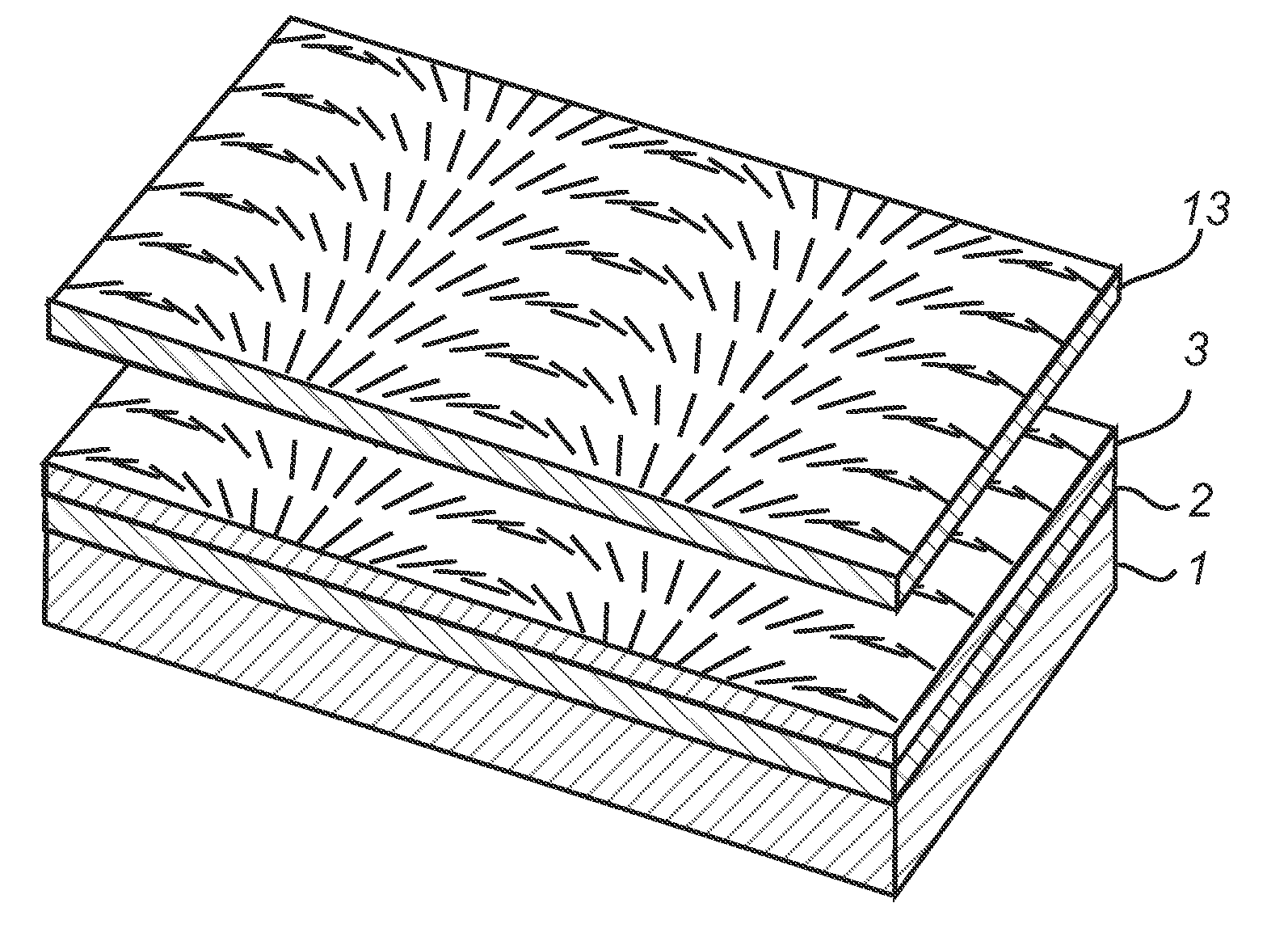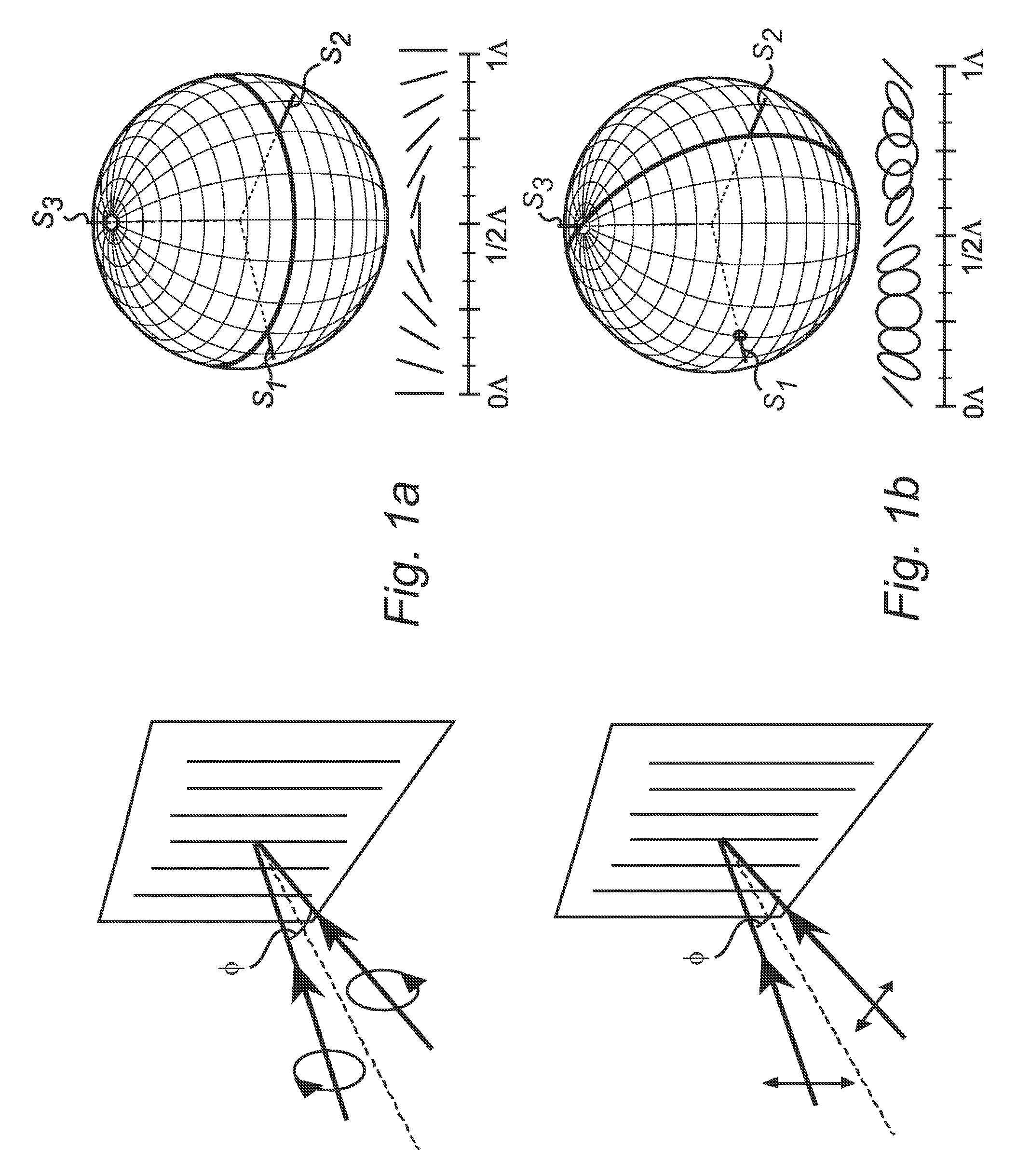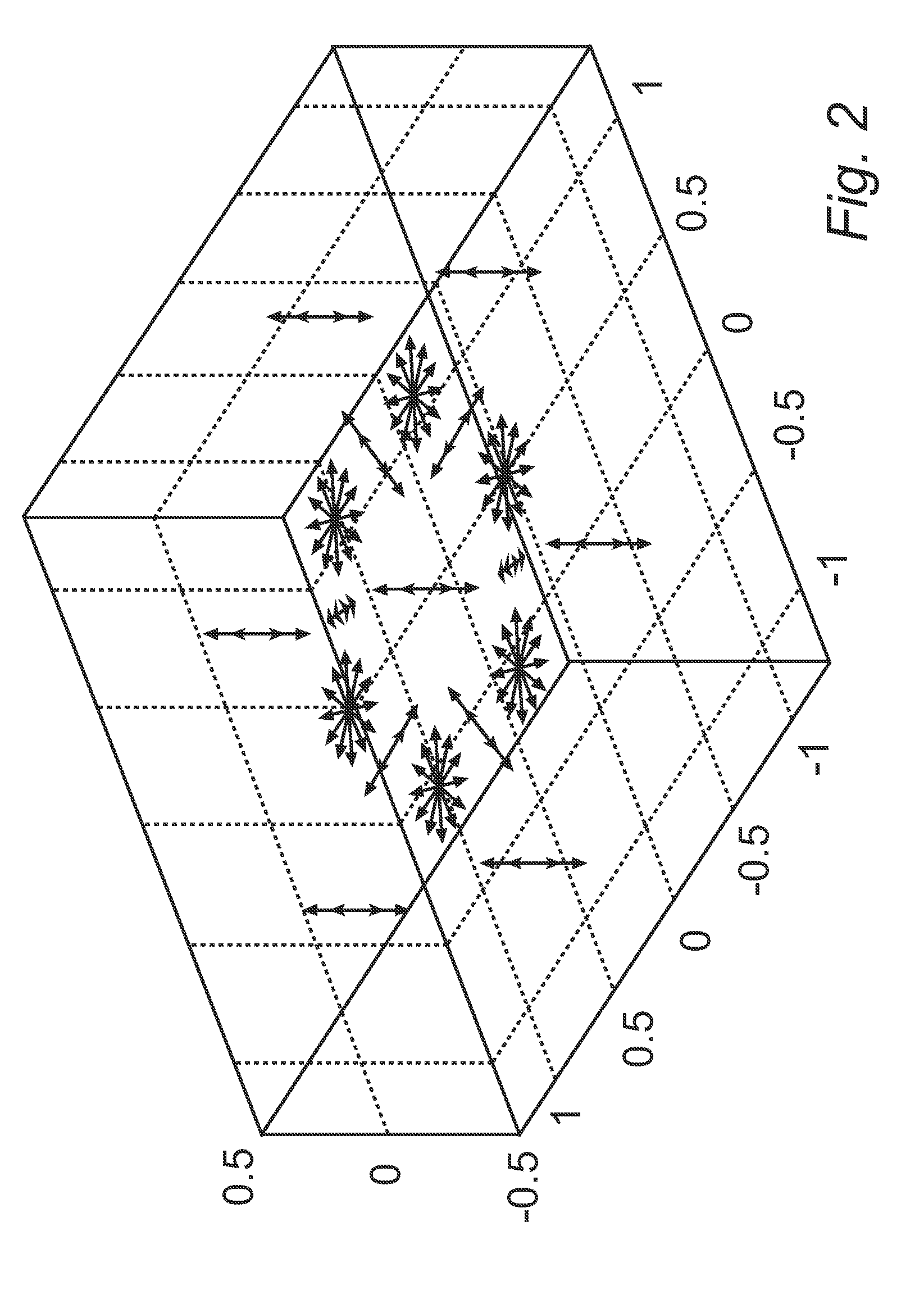Polarization gratings in mesogenic films
a technology of polarization gratings and mesogenic films, applied in the field of new polarization gratings, can solve the problems of limited long-term stability, limited wavelength applicability, and gratings often degrade the unique diffraction properties of polarization gratings, and achieves high diffraction efficiency, high diffraction efficiency, and easy production
- Summary
- Abstract
- Description
- Claims
- Application Information
AI Technical Summary
Benefits of technology
Problems solved by technology
Method used
Image
Examples
example 1
Manufacture of a Single Layer Polarization Grating
[0167]To obtain a polarization grating, a photo-alignment material Vantico Star-Align 2110 was spincast onto a borosilicate glass substrate to form a thin, ˜50 nm, film.
[0168]The glass substrate was placed on a UV-absorber, a polycarbonate sheet and a index matching fluid film, to minimize back-surface reflections.
[0169]The photo-alignment film was then in a standard holographic setup exposed to two superimposed laser-beams of 351 nm at ˜9 J / cm2, one right handed and one left handed circularly polarized, each with an angle of incidence of 1.18°, and an angle of 2.36° separating the two beams. The polarization hologram formed in this holographic setup was thus recorded in the photo-alignment film.
[0170]Onto the photo-alignment layer, a polymerizable liquid crystal composition (RMM34 Eutectic mixture, Merck) was spincoated (Convac Spinner, 60 s at 2500 rpm) yielding a layer thickness of about 1.4 μm. To align the liquid crystal composi...
example 2
Manufacture of a Double Layer Polarization Grating
[0172]A polarization grating was manufactured as in example 1, as in example 1, however with an angle of 6.70° separating the beams.
[0173]Onto the photo-alignment layer, a polymerizable mesogen composition (RMM34, as in example 1) was aligned and polymerized to form a 1 μm thick solid film where the optical axis exhibits a repeating spiral pattern.
[0174]After polymerization of the first mesogen composition, a second mesogen composition (RMM34, as above) was coated onto the first, whereby it was aligned to the repeating spiral optical axis pattern of the first composition and polymerized to form a 1.2 μm thick solid layer.
[0175]The resulting double layer film was placed between crossed polarizers, and a photograph of this is shown in FIG. 5b, where the scale mark is 10 μm, and the grating period Λ is ˜3 μm.
[0176]The total thickness d of the formed polarization grating is 2.2 μm, and thus, this film widely exceeds the approximate limit...
example 3
Switchable Polarization Grating
[0178]Two borosilicate glass substrates was coated with a photo-alignment film as in example 1, and was arranged to as a closed cell structure with the alignment films facing each other. The cell spacing was 5.1 μm. The cell was filled with cyclohexane and then, in a standard holographic setup, exposed to two superimposed laser-beams of 351 nm at ˜10 J / cm2, one right handed and one left handed circularly polarized, with an angle of 2.28° separating the two beams.
[0179]The polarization hologram formed in this holographic setup was thus recorded in both the photo-alignment films. The cyclohexane was evaporated from the cell, and the cell was subsequently filled with a liquid crystal composition (E7, Merck), which was aligned by both the alignment films.
[0180]A transparent electrode was arranged on the outside of each substrate, and light of 633 nm was passed through the cell. The first order diffraction efficiency was measured as a function of the voltag...
PUM
| Property | Measurement | Unit |
|---|---|---|
| angle | aaaaa | aaaaa |
| wavelength | aaaaa | aaaaa |
| angle | aaaaa | aaaaa |
Abstract
Description
Claims
Application Information
 Login to View More
Login to View More - R&D
- Intellectual Property
- Life Sciences
- Materials
- Tech Scout
- Unparalleled Data Quality
- Higher Quality Content
- 60% Fewer Hallucinations
Browse by: Latest US Patents, China's latest patents, Technical Efficacy Thesaurus, Application Domain, Technology Topic, Popular Technical Reports.
© 2025 PatSnap. All rights reserved.Legal|Privacy policy|Modern Slavery Act Transparency Statement|Sitemap|About US| Contact US: help@patsnap.com



